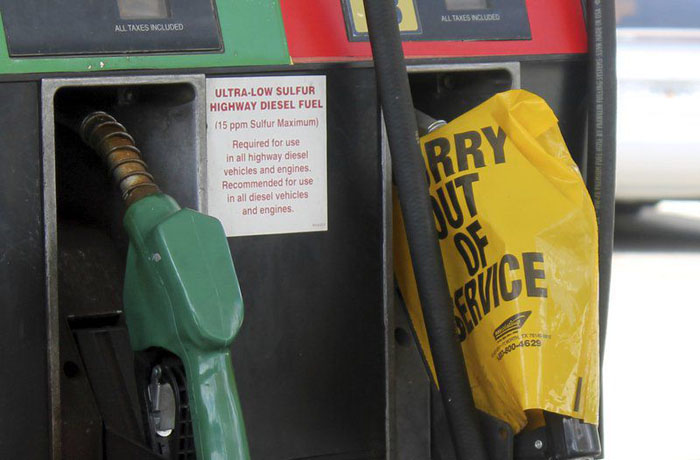Pipeline woes may hit Valdosta at the pump
Published 9:30 am Monday, September 19, 2016

- Terry Richards | The Valdosta Daily TimesAn out-of-service gas pump is seen in Lowndes County Saturday. A major pipeline accident in Alabama has sparked fears of gasoline shortages and higher prices at the pump, with states of emergency declared in Alabama and Georgia.
VALDOSTA, Ga. — While Valdosta’s gasoline prices officially held steady in the past week, there are already indications prices may be pushing upward in the wake of a major pipeline accident in Alabama threatening supply disruptions to the region.
The average price for a gallon of regular gasoline in Valdosta Saturday was $2.02, unchanged from seven days earlier, according to AAA’s Daily Fuel Gauge Report.
However, the lowest price in the city was $1.93 a gallon at a convenience store on West Hill Avenue, a sharp seven cents higher than the lowest price from one week before, according to the price tracking website gasbuddy.com.
Another ominous sign: Only 22 gas stations in Valdosta were listed by gasbuddy as offering fuel for less than $2 a gallon, down from more than 60 in recent weeks.
Nationally, the average price for gasoline was $2.19 Saturday, up a penny from the previous week, while statewide, Georgia’s Saturday average was $2.20, an increase of nine cents from seven days earlier, according to AAA.
The spill from the Colonial Pipeline was first detected Sept. 9, and caused the governors of Alabama and Georgia to declare states of emergency amid fears that some pumps may run dry.
Georgia Gov. Nathan Deal eased restrictions on the number of hours tanker trunk drivers can be on the road in order to speed oil deliveries by truck. Deal’s order remains in force until Sept. 23.
Motorists could pay more for gasoline in coming days, although experts said any spike in service-station prices should only be temporary.
Colonial said supply disruptions would be felt first in Georgia, Alabama, Tennessee, North Carolina and South Carolina. If prices rise, the effect could be felt the hardest in Tennessee, which is supplied by a spur off the leaky pipeline.
The pipeline runs from Texas to New Jersey, supplying fuel to states in the Southeast and on the East Coast.
Pump prices typically decline during this time of year due to lower driving demand after the busy summer driving season has concluded and the changeover from summer-blend to a cheaper-to-produce winter-blend gasoline, which took place in many parts of the country Thursday, according to the auto club.
The Associated Press contributed to this report.
Terry Richards is senior reporter at The Valdosta Daily Times.

